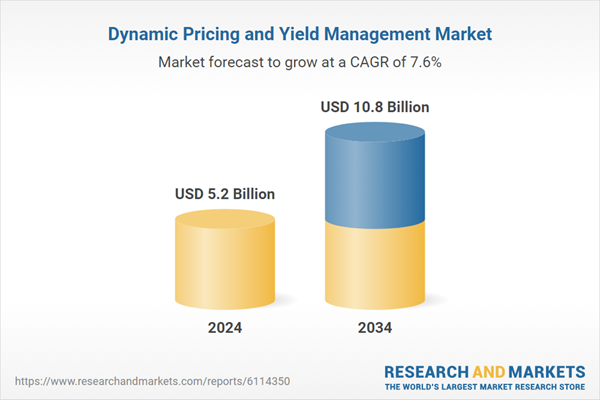AI and machine learning play a critical role in these strategies, helping companies analyze large volumes of market data and automate price adjustments instantly. These technologies are reshaping how firms manage inventory, improve customer experience, and stay ahead of their competitors by responding dynamically to market forces. They enable organizations to make smarter, data-driven pricing decisions that account for consumer behavior, seasonality, regional trends, and competitor activity in real time. By continuously analyzing massive volumes of structured and unstructured data, these tools help optimize pricing at the product, category, or even individual customer level. Businesses can minimize stockouts and overstocks, ensuring better inventory turnover and improved operational efficiency.
In 2024, the dynamic pricing software platforms segment held a 37% share and is anticipated to grow at 8.4% CAGR through 2034. As digital-first strategies continue to evolve, these platforms offer automation and real-time pricing intelligence that are increasingly essential for both large-scale enterprises and small to medium businesses. By reducing the need for manual oversight, these solutions enhance agility and improve decision-making. The expanding presence of online retail and mobile commerce, along with the development of smart cities, has further fueled the demand for adaptable pricing systems tailored to fast-changing digital ecosystems.
The cloud-based segment captured a 63% share in 2024 and is expected to grow at a CAGR of 7.5% during 2025- 2034. These platforms are cost-effective, easy to scale, and offer rapid deployment, making them particularly attractive to startups and smaller firms. They support secure, real-time data access and continuous performance optimization, allowing businesses to update pricing strategies swiftly. With ever-increasing data availability in the digital space, cloud infrastructure gives companies the flexibility to manage pricing dynamically across multiple channels while maintaining security and speed.
United States Dynamic Pricing and Yield Management Market held an 85% share, generating USD 1.65 billion in 2024. A strong presence of advanced digital businesses and established AI-powered pricing systems continues to drive the region’s leadership. The U.S. has long leveraged yield management strategies in areas such as travel and hospitality, where demand-based pricing is essential. The country’s robust digital and e-commerce infrastructure supports the widespread use of cloud and analytics-driven pricing tools that adapt to real-time variables, customer preferences, and inventory conditions.
Key companies operating in this space include Blue Yonder, PROS, Dynamic Yield, SAP SE, Revionics, Oracle, Pricefx, Duetto, Zilliant, and IDeaS Revenue Solutions. To solidify their market position, leading firms in the dynamic pricing and yield management industry are focusing on integrating AI and predictive analytics into their platforms for more accurate forecasting and automation. Companies are also prioritizing product scalability, ensuring their solutions are adaptable for both large enterprises and SME. Many players are offering modular, cloud-based systems that can be rapidly deployed with minimal infrastructure. Strategic partnerships with e-commerce providers, hospitality chains, and logistics firms are expanding their user base and market access.
Comprehensive Market Analysis and Forecast
- Industry trends, key growth drivers, challenges, future opportunities, and regulatory landscape
- Competitive landscape with Porter’s Five Forces and PESTEL analysis
- Market size, segmentation, and regional forecasts
- In-depth company profiles, business strategies, financial insights, and SWOT analysis
This product will be delivered within 2-4 business days.
Table of Contents
Companies Mentioned
- Atomize
- BlackCurve
- Blue Yonder
- Competera
- Duetto
- Dynamic Yield
- IDeaS Revenue Solutions
- Omnia Retail
- Oracle
- Pricefx
- PriceLabs
- Prisync
- PROS
- Qcue
- RealPage
- Revionics
- SAP
- Wheelhouse
- YieldPlanet
- Zilliant
Table Information
| Report Attribute | Details |
|---|---|
| No. of Pages | 180 |
| Published | July 2025 |
| Forecast Period | 2024 - 2034 |
| Estimated Market Value ( USD | $ 5.2 Billion |
| Forecasted Market Value ( USD | $ 10.8 Billion |
| Compound Annual Growth Rate | 7.6% |
| Regions Covered | Global |
| No. of Companies Mentioned | 20 |









